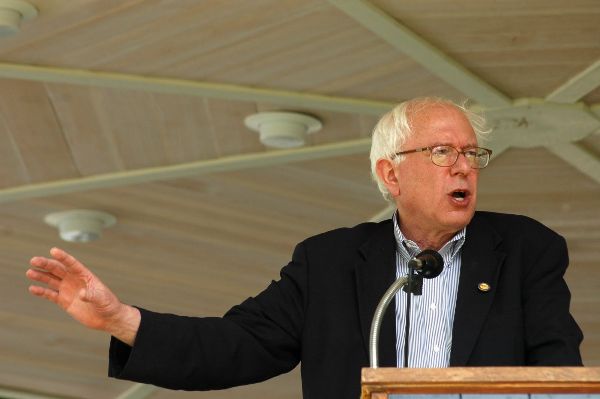This Election, US Gains Independents in the Senate

As of 10 AM EST on November 7th 2012, independent Senate candidates have earned 897,259 votes, a number will only rise as precincts continue to report. As independent votes creep towards the one million mark in the Senate race, history has already been made for non-partisan voters. Though no independent Governors or Congressmen were elected last night, two independent candidates won seats in the US Senate.
In Vermont, Sanders won by a 46% margin over his Republican opponent. He has held his seat since 2006, and it appears he will remain the longest standing independent Senator in recent years. In Maine, Angus King dominated his partisan opponents with a 53% victory. With double the amount of independents in the Senate and a close margin for control, both parties will be anxiously awaiting their party alignment announcements. Both King and Sanders are heralding in a new age for the US Senate, an age where citizens are not voting strictly along party lines, an age where the ballot is no longer exclusively blue and red.
Vermont - Bernie Sanders, I
Sanders was first elected to his seat in 2006, when he dominated the Vermont Senate race with a 33% lead over his Republican opponent. His re-election last night came as no surprise, and he earned more than double the votes of his next most popular opponent, a Republican. The Senator ran no attack ads, and instead invested his campaign funds in a door-knocking campaign. He traveled to small towns and invited Vermonters to spend a night at a town hall meeting, discussing problems they wanted to see fixed should Sanders be reelected.
Sanders is a no-nonsense politician. He does not take kindly to the mind games and talking heads that dominate Washington. On campaigning and consultants, Sanders had this to say:
"These damned consultants come in and say, ‘This is how you have to run,’ and it’s always the same: raise money, spend it on television, don’t say anything that will offend anyone. And the Democrats do it and then they end up in tight races, worried about whether they’ll make it. For the life of me, I can’t figure out why progressives listen to consultants. Building movements, making progress on progressive issues — you have to talk to people, educate people, organize people."
Sanders' campaign harkens ideas of a small town mayoral campaign rather than that of a national Senate seat, but his methods have worked swimmingly with Vermonters. He takes strong stances on issues concerning his constituents, particularly problems facing middle class to low income voters. In a recent interview, Sanders encouraged the President to do the same:
In terms of social security, I think if the president says a magic six words, ‘I will not cut Social Security,’ it’s gonna reassure a whole lot of working people in this country. I think it’s not only the right thing to do for the future of America, I think it would make him a more popular president.
Maine - Angus King, I
IVN reported on the scrappy Senate race in Maine at the beginning of October. The Republican and Democratic parties were both pouring money into political ads in hopes of unseating the tremendous lead King established early in the race. Last night, King overcame the mountain of adversity he faced in the Pine Tree State. King served as governor of Maine for two terms from 1995 to 2003 as an independent.
The people of Maine showed up in droves at polling stations across the state to show their continued support for a beloved politician. King won the race with a 10% lead over both his opponents, combined. King is expected to announce his party alignment next week, though he assures voters he will "be as independent as I possibly can..."
The Senator overcame a slew of attack ads, he defended his questioned integrity and focused on the issues faced by Mainers, as he had done in his 1995 election. Though he has caucused with Democrats in the past, King is not wed to the blue side of the aisle. King, much like Sanders, does not shy away from controversial statements:
I was in favor of ending the Bush-era tax cuts immediately, but after continued poor employment numbers, we need a more nuanced approach. We should consider pegging the sunset of these tax cuts to something non-arbitrary, like a certain amount of GDP growth, or a lower level of unemployment. This would avoid the unproductive brinkmanship that Congress engages in over this issue – and could prevent our fragile recovery from being further slowed down.




